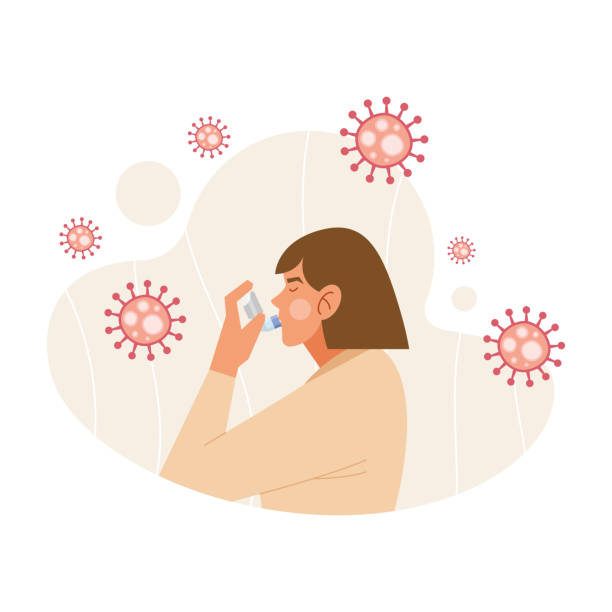
Generally speaking. Asthma is a respiratory disease. Cause of asthma is caused by a combination of genetic and environmental factors.
Environmental factors include exposure to airborne pollution and allergens. Other possible triggers include drugs such as aspirin and beta-blockers.
It’s unclear why some people get asthma and others don’t. But this may be the result of a combination of environmental and genetic factors.

Asthma Triggers
Exposure to various irritants and allergy-inducing substances (allergens) may trigger asthma signs and symptoms. Asthma triggers vary from person to person and include:
1、Airborne allergens
Such as pollen, dust mites, mold spores, pet dander, or cockroach fecal particles.
2、Upper respiratory tract infection
Repeated viral infections can damage airway epithelial cells, And cause bronchial asthma.
3、Physical activity
4、Cold air
The elderly have relatively less intracellular water content and less body heat. Deterioration of lung function results in decreased exercise load tolerance. Asthma is easily induced when encountering cold air stimulation or improper exercise.
5、Air pollutants and irritants
Such as smoke.
6、Certain medicines
Includes beta blockers, aspirin, and NSAIDs such as ibuprofen (Advil, Motrin IB, etc.) and naproxen sodium (Aleve).
7、Strong mood changes and stress
8、Foods and beverages with added nitrites and preservatives
such as shrimp, dried fruit, processed potato products, beer and wine.
9、Gastroesophageal reflux disease (GERD).
A condition in which acid refluxes into the throat.

Risk Factors
Many factors can increase your chances of developing respiratory disease like asthma, including:
- An immediate family member (such as a parent or sibling) has asthma.
- have other allergic conditions. Examples include atopic dermatitis will cause red, itchy skin. Hay fever will cause rhinorrhea, stuffy nose, and itchy eyes.
- overweight.
- smoking. Long-term smoking can cause airway hyperresponsiveness. This is one of the main features of bronchial asthma. That is why senile asthma is important.
- Exposure to secondhand smoke.
- Exposure to exhaust gas or other types of pollutants.
- Exposure to occupational incentives. Such as chemicals used in agriculture, the hairdressing industry and manufacturing




Recent Comments